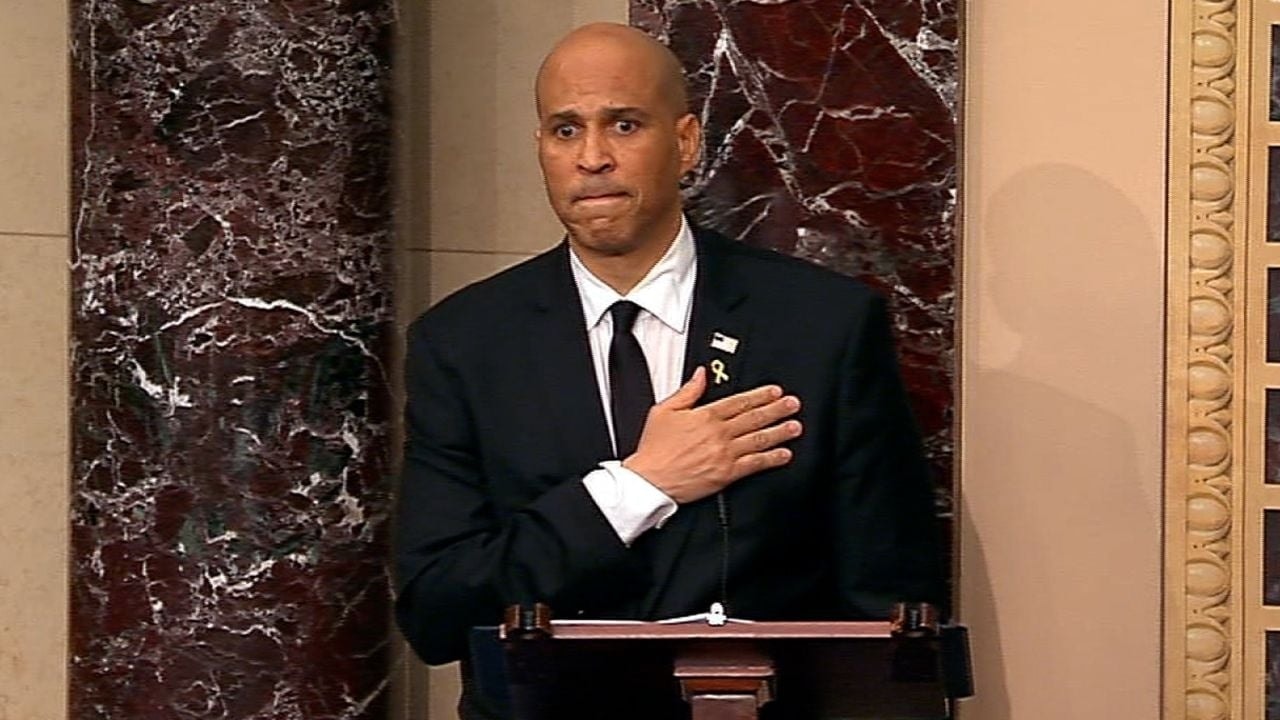Only minutes after the announcement broke in New Jersey, the political world was already buzzing. Senator Cory Booker, a name long recognized in both state and national politics, was officially confirmed in a new role that promises to reshape his career and potentially influence the broader direction of American governance. What might have seemed like a routine political development quickly escalated into front-page news, signaling how closely Booker’s trajectory is being watched.
For supporters, this moment has been a long time coming. Booker’s political career has always been marked by his ability to inspire loyalty and admiration from his base. Known for his charisma, compassion, and dedication to public service, he has cultivated a reputation as a leader who is as comfortable in neighborhood meetings as he is on the Senate floor. His confirmation was celebrated across New Jersey, with constituents hailing it as not just a personal victory for Booker, but a collective win for the communities he has championed. To them, his new position represents the continuation of a decades-long fight for economic fairness, racial equity, and progressive reforms.

However, as with all high-profile political figures, there are critics who see the moment through a far more skeptical lens. Booker has faced his share of controversies and challenges, ranging from questions about his ties to Wall Street donors to debates over his record on housing and policing. Detractors argue that his confirmation will place him under an even harsher spotlight, forcing every decision to be scrutinized at both state and national levels. Some point out that in the polarized climate of 2025, even well-intentioned leaders often find themselves engulfed in partisan battles that erode trust and stall progress.
Still, Booker’s rise to this new chapter cannot be separated from the qualities that have defined his career. His political journey began in Newark, where he first gained national attention as a city councilman who once lived in a low-income housing complex to better understand the struggles of his constituents. As mayor, he earned a reputation for his hands-on approach—shoveling snow after blizzards, rescuing residents from burning buildings, and leveraging social media to connect with the public. That brand of visible, accessible leadership carried him to the U.S. Senate, where he has served since 2013.
His confirmation now underscores the trust placed in him not only by colleagues but also by a political establishment that sees him as a figure capable of bridging divides. While details of his new role continue to unfold, analysts suggest it could set the stage for bigger ambitions, perhaps even reviving speculation about another presidential bid in the future. Booker has already run for the Democratic nomination once, in 2020, and though his campaign fell short, his performance left a lasting impression.
The national conversation surrounding his confirmation reflects this duality. For admirers, Booker represents hope—a leader willing to fight for healthcare access, criminal justice reform, and climate resilience. For critics, he represents uncertainty—a politician whose progressive promises are sometimes tempered by pragmatic compromises. The tension between these views may well define the challenges he faces in the months ahead.
What remains clear is that Booker’s ability to navigate this new chapter will have ripple effects beyond New Jersey. His presence on the national stage has always carried weight, whether he was advocating for sweeping reforms in the Senate, delivering impassioned speeches at Democratic conventions, or pushing for bipartisan cooperation on issues like criminal justice reform. Now, with confirmation in hand, the pressure is on him to turn rhetoric into results.
Political observers note that timing will play a crucial role. With the nation approaching another contentious election cycle, Booker’s actions could influence both the Democratic Party’s image and voter sentiment in key battlegrounds. If he succeeds in balancing progressive ideals with pragmatic governance, he could strengthen the party’s appeal across a divided electorate. If he falters, his critics will likely seize the opportunity to portray him as yet another politician unable to deliver on lofty promises.
For now, the public waits. In living rooms across New Jersey and offices in Washington, people are watching closely to see how Booker defines this new role. Supporters hope to see bold initiatives that reflect his long-standing commitment to social justice. Opponents are bracing for decisions they will undoubtedly challenge. And through it all, Booker himself must navigate a political landscape where every step forward carries both risk and reward.
What cannot be denied is the historic nature of the moment. Cory Booker’s confirmation is not just another headline—it is a turning point that underscores both his enduring influence and the stakes of leadership in today’s America. Whether this chapter becomes the defining peak of his career or simply another step on a longer journey remains to be seen. But one truth is already clear: the spotlight has never burned brighter, and Cory Booker must now prove that he can live up to both the promise and the pressure of this pivotal moment.


